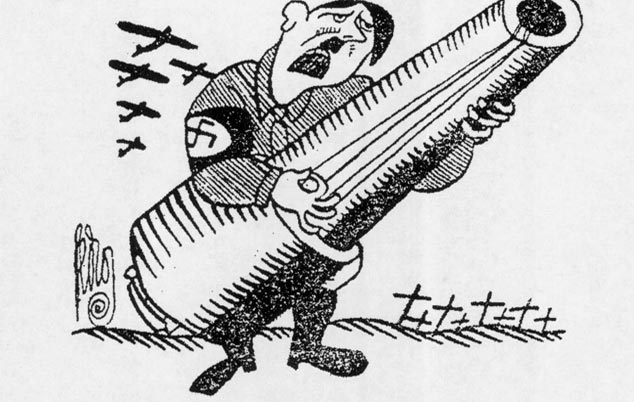
Especially in the early years, the Nazi regime is acutely alert to the effects of its decisions abroad. Hitler and his minions know that reactions from foreign governments could jeopardize their plans. So National Socialist policy relies on a mixture of offense and defense, barely veiled threats and simultaneous tactical assurances of the desire for peace.
Along with the 1936 Olympics in Berlin, the annual Party Rallies offer a chance to show off the Third Reich to the outside world. Nuremberg is especially intended as a clear demonstration of how deeply the Germans assent to National Socialism.
Yet during the first years, attendance by official representatives from other countries, by diplomats and ambassadors, leaves something to be desired. Not until 1937 do Great Britain and France send their ambassadors to Nuremberg; the USA follows a year later.
Opinion in the foreign press also remains divided. Papers in the democratic countries of Europe and North America criticize the militarism on display in Nuremberg and the uninhibited propaganda machinery. But reporting from countries with dictatorships or authoritarian regimes, like Italy, the Soviet Union, and Austria, is largely no more than a reflection of the current government's relations with the Third Reich.



